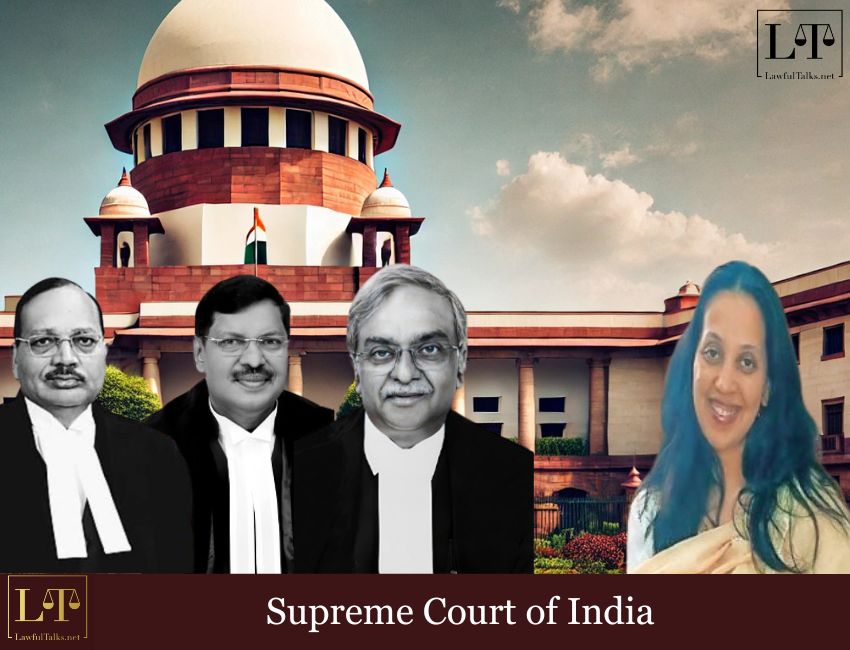Trump's Battle To Be On US President’s Ballot, 'Trump Versus Anderson' In The Us Supreme Court

Recent media reports have widely noted that the proposal to appoint Advocate Aarti Sathe as an Additional Judge of the Bombay High Court has generated controversy after it emerged that she previously served as the official spokesperson for the Maharashtra BJP. It may be recalled that the Supreme Court Collegium had also approved the Bombay High Court Collegium’s recommendation to elevate Advocates Ajit B. Kadthanekar, Ms. Aarti Sathe and Shri Sushil Manohar Ghodeswar as judges of the Bombay High Court.

Opposition leaders in Maharashtra have objected to Ms. Sathe’s recommendation, arguing that the appointment of a former party spokesperson would undermine judicial impartiality. Rohit Pawar, MLA and General Secretary of the NCP (SP), has been widely quoted saying that appointing a person who has publicly advocated for the ruling party to the bench would be “the greatest blow to democracy,” and that such appointments could have far-reaching consequences for the impartiality of India’s judicial system.
These objections, however, rest on serious misunderstanding of our constitutional framework and the history of the Indian judiciary. The Constitution does not disqualify persons with prior political affiliations from appointment to the superior judiciary.
What the Constitution and judicial office requires is not political neutrality in one’s past, but judicial integrity, legal competence, and a steadfast commitment to decide matters according to law and the oath the judge takes: to discharge the duties of office “without fear or favour, affection or ill-will.”
History furnishes numerous examples of jurists who had political careers before taking to the bench, yet earned widespread respect for their judicial work. The late Justice V.R. Krishna Iyer, perhaps the most celebrated instance, served in elective politics and as a minister in Kerala before his elevation to the Kerala High Court in 1968 and subsequently to the Supreme Court in 1973.
His judicial legacy is remembered for its humane approach to justice and for progressive contributions to law. Similarly, jurists such as Justice Baharul Islam — who had earlier served in the Rajya Sabha — went on to serve with distinction on the High Courts and the Supreme Court.
In the same vein, Justice Ferdino Rebello, a former legislator in Goa, earned a reputation on the bench for fairness and mentorship to the bar.
K.S. Hegde, who joined the Indian National Congress in 1935, was elected to the Rajya Sabha in 1952 for a two-year term and re-elected in 1954 for a six-year term, all the while continuing his legal practice. In August 1957, he resigned from the Rajya Sabha to accept an appointment as a judge of the Mysore High Court. He was elevated to the Supreme Court in July 1967.
In 1973, when the Indira Gandhi government superseded him along with Justices J.M. Shelat and A.N. Grover, to appoint Justice A.N Ray as Chief Justice of India, all three judges resigned in protest.
More recently, Justice Sandeep Shinde (Retd) of the Bombay High Court had contested the Mumbai Municipal Corporation elections as a candidate of a political party. However, during his tenure on the bench, no trace of bias was ever observed in the discharge of his judicial duties.
Given these precedents, rejecting a candidate solely because they were once active in politics and prior political engagements risks discarding capable jurists and losing capable judges. A judge’s true credibility comes from how they work on the bench, their fairness, reasoning, and commitment to the Constitution.
Concerns should be raised only when there is proof of bias or wrongdoing, not simply because of someone’s past political role.
Advocate Aarti Sathe, on the information available, meets the qualifications required for appointment. Beyond her past role as a party spokesperson, a position she has reportedly since given up, there appear to be no allegations of professional impropriety.
The real safeguard for the judiciary lies in a strict appointment process, followed by the oath judges take and the institutional checks that guide their work. Politics and law are not completely separate worlds, but what truly matters is that once appointed, a judge fulfils their constitutional duty to apply the law fairly and without bias.
In this case, criticism of the collegium’s recommendation seems more like political point-scoring than a genuine concern for judicial independence. Public debate on such appointments is healthy, but it should be based on constitutional facts and focused on a judge’s conduct and ability — not on shallow objections to their past political links.
Politicians will do well to familiarise themselves with our constitutional framework and the history of the Indian judiciary before making broad public statements.
Rajiv Chavan, Senior Advocate & Former President Of Advocates Association Of Western India

Rajiv Chavan
Senior Advocate & Former President -Advocates Association of Western India (2013-2015 & 2015-2018)


































